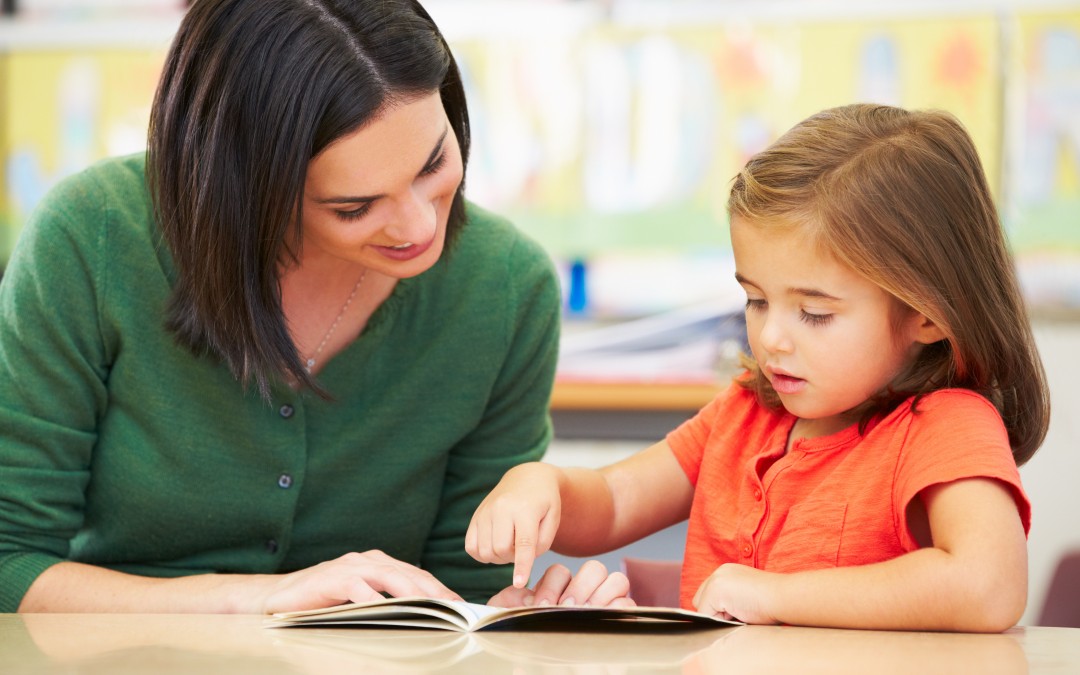
by PRIDE Reading Program Admin | Jan 3, 2016 | A PRIDE Post, Auditory Processing Disorder
Having strong language skills is very important in school. Students who have auditory processing disorder have weaker language skills compared to others of their age and can therefore have serious problems as students. Even though individuals with auditory processing disorder are intelligent in other important ways, students with language disorders are apt to find school especially difficult and sometimes frustrating and embarrassing.
Kinds of problems that students with Auditory Processing face:
- Vocabulary:
Students with auditory processing are sometimes slower at learning, understanding and using new words.
- Comprehending spoken language: Some students with auditory processing feel that the teacher is speaking much too fast. They start getting mixed up or confused when a teacher gives them complicated instructions or explanations.
- Reading: Individuals with auditory processing disorder might find themselves falling far behind in their reading skills. In the beginning grades, these children might have trouble sounding out or identifying individual words because of poor phonemic awareness and phonological processing skills. Others might understand the sounds but have troubles remembering them. As the grades get higher, these students often have more and more difficulty with understanding or remembering what was read which hinders their reading comprehension skills.
- Communicating ideas in words: Sometimes students with auditory processing skills have a strong vocabulary but have difficulties recalling, finding and using the right words quickly when they need them. This hinders their abilities to participate in classroom discussions or makes them nervous when they are called upon in class. Many times these students have excellent ideas but difficulties expressing them in language.
- Writing and Spelling: Students who have difficulties expressing their ideas out loud often also struggle expressing themselves on paper. Compositions, book reports, essays and stories are a huge obstacle of them. Because these kids don’t have a strong sense of the sounds of the language, they will struggle in spelling. They won’t apply spelling rules, usually spelling the words exactly as they look.
What can be done about Auditory Processing Disorder?
Get Help from Teachers:
- A teacher needs to be informed that the student does indeed have an auditory processing disorder and how this might affect the student’s classroom performance.
- The teacher dealing with a student with auditory processing needs to be flexible in their approach, so that they can find a method that suits the child, rather than expecting that all students will learn in the same way.
- The teacher can be cautious not to talk too quickly or in sentences that are too long or complicated.
- The teacher can give the student some visuals and illustrations on what is being said.
- Most often, the student with auditory processing needs to sit in the very front of the class so that he or she can listen and focus on the language better.
- The teacher can also give the student extra time for a response when asked a question, or focus more on yes and no questions for these students.
Get Outside Professional Help:
Students with Auditory Processing Disorders will need extra outside the school help with reading, writing, and spelling. The tutor who does this should be knowledgeable and experienced in working with students with learning disabilities and trained in a reputable multisensory Orton-Gillingham reading, writing, spelling ad comprehension program.
Many students with Auditory Processing benefit greatly when working together with a speech and language therapist. Speech Therapists have been specially trained to work with individuals who are having difficulties understanding or communicating. Both the tutor and the speech therapist can work side by side and also help the classroom teacher understand auditory processing and the student’s language difficulties.
Don’t Give Up!
Students that have Auditory Processing Deficits should never get discouraged. Most of these students do improve as they go through school. However, there might be some students who fall behind in school because of their language problems. It is easy for these kids to get discouraged and give up. When this happens their academic skills end up further behind those of kids who get a lot of practice through schoolwork. Work hard and stay motivated. Get outside help and stay positive.
_________________________________________________________________________

Karina Richland, M.A. is the Founder and Director of PRIDE Learning Centers, located in Los Angeles and Orange County. Ms. Richland is a certified reading and learning disability specialist. Ms. Richland speaks frequently to parents, teachers, and professionals on learning differences, and writes for several journals and publications. You can reach her by email at karina@pridelearningcenter.com or visit the PRIDE Learning Center website at: www.pridelearningcenter.com

by PRIDE Reading Program Admin | Dec 29, 2015 | A PRIDE Post, Reading Skills
Happy New Year!
New Year’s resolution for kids give a perfect opportunity for you and your child to discuss areas in which there’s room for improvement. The one resolution you should always try and make as a family is to spend more time reading. Why is it that some children seem to take to reading with no effort and no nagging, while other children would rather do almost anything than read? If you are a parent interested in ways to inspire those reluctant readers in your family, then this article will offer valuable information for you.
Make the most important New Year’s Resolution for your kids reading this year. Reading is a skill that needs to be practiced regularly. Without practice, young readers will not develop the vocabulary, the skills, and the fluency necessary to become strong readers. But many children, even those with strong reading skills, do not get enough practice and as a result become disinterested in reading, and can quickly become discouraged. Here are some practical tips for encouraging reluctant readers and making those New Year’s resolutions with your kids:
• Find books with cartoons or humor — which only a child would find amusing
Books that make children laugh are more engaging for young readers. Not everything needs to be a learning lesson. Letting children read books such as Captain Underpants or Diary of a Wimpy Kid will keep them engaged and entertained. Although adults might find the language and humor distasteful, children find it very funny and are therefore more motivated to read.
• Zero in on your child’s passions and choose books and magazines focused on areas of interest
Find books on specific topics to keep your child’s interest, such as science, baseball, American Girl dolls, etc. Children who already have the background knowledge, language and vocabulary before beginning a book will have an easier time getting through the reading. Order a magazine subscription to Sports Illustrated for Kids or Nickelodeon. Children love receiving mail and reading ‘their’ magazines.
• Get your child an email account and, together, check it regularly
Using the computer to read and write is a huge advantage for most students. By letting young children write and send email, they practice reading, writing and spelling. Teach your child how to use spell check before sending off messages. Be sure to monitor your child’s ‘pen pals’ – who is your child writing to and receiving mail from? Let your child pick out a few family members, including grandparents and maybe two or three friends. You will find that by using email regularly, your child becomes very strong in keyboarding and using the computer.
• Find an author that your child likes and stick with it
If your child loves reading Hank Zipzer by Henry Winkler or Tales of a Fourth Grade Nothing by Judy Blume, then you have found a writing style which stimulates your child’s interest. Go through the entire series. Don’t worry if the reading is below grade level: your child is reading for pleasure and for practice. Also remember, just because you loved a certain author or series when you were a kid, this doesn’t mean your child will love the same books you did. Browse the bookstore or library and find the newest, most modern series. Usually these books contain language and themes to motivate the most reluctant reader. Kids need to relate to what they are reading, and modern language usage helps.
• Let your child talk to you about the book they are reading.
When we adults read books we enjoy, we like to talk about them. After reading a book, we don’t necessarily want to write a summary, book report or make a project of it. We just want to discuss it with someone else. Look interested in what your child is reading (yes, even if it is Captain Underpants) and ask questions and have your child tell you about it. Laugh with your child about the funny parts (even at the bathroom jokes) and help your child feel good about reading.
• Limit media.
Television, computer time, and video games can quickly take up all of your child’s free time. Limit the amount of media you allow your child and your family will have more time for reading.
Enjoy the New Year and keep reading!
Learn more about the New PRIDE Reading Program
__________________________________________________________
Karina Richland, M.A., E.T. is the Director and Founder of Pride Learning Centers. A former teacher for Los Angeles Unified School District, Ms. Richland has devoted her life to the field of reading and learning disabilities, working as an educational therapist and director of Pride Learning Centers. Ms. Richland speaks frequently to parents, teachers, and professionals on learning differences, and writes for several journals and publications. You can visit her website at: https://www.pridelearningcenter.com

by PRIDE Reading Program Admin | Dec 6, 2015 | A PRIDE Post, Reading Fluency
Do you watch your child struggle to read a book that you feel is just perfect for their age and reading level? Is the reading choppy and slow?
Reading fluency is the process where a child reads aloud expressively and with understanding. When a child reads fluently, the words flow smoothly and at an efficient pace. Reading fluency is a critical component in the reading process. Stumbling and hesitating over words undermines reading comprehension given that by the time the child gets to the end of a sentence he or she will have completely forgotten what was at the beginning of the sentence!
How do you measure reading fluency in your child?
- Ask the child to read a grade level passage that they have never seen or read before.
- Using a timer have the child read this text for one minute.
- While reading the passage, tally the errors the child makes while reading.
- Stop the child after one minute. Count the number of words read in the minute and subtract any errors made by the child. For example: if he or she read 120 words in a minute and made five errors then the child’s reading fluency rate is 115.
- Use the chart below to determine if your child’s reading rate is on target.
Mean Words Correct Per Minute “Targets” for Average Students in Grades One through Eight
| Grade | Fall Target | Winter Target | Spring Target |
| | | | |
| 1 | Not applicable | 20 | 50 |
| 2 | 50 | 70 | 90 |
| 3 | 70 | 90 | 110 |
| 4 | 95 | 110 | 125 |
| 5 | 110 | 125 | 140 |
| 6 | 125 | 140 | 150 |
| 7 | 125 | 140 | 150 |
| 8 | 130 | 140 | 150 |
Johns, J. and Berglund, R. (2006). Fluency strategies and assessments. Dubuque, IA: Kendall/Hunt Publishers.
How do you determine a child’s reading level to test for fluency?
Probably the easiest ways to determine if a book is at an appropriate reading level for your child is the Five Finger Rule. Have the child begin reading a chapter, and put down one finger each time he struggles with a word. If they reach the end of the page before you get to five fingers, the book is written at a comfortable level for independent reading.
What can you do to increase and improve your child’s reading fluency?
The very best way is through practice, both through oral and silent reading.
One approach to practicing reading fluency is for the child to repeatedly read the same passage or text either with a parent or teacher three to four times. Rereading text gives the child multiple opportunities to read unfamiliar words. After repeated reading, those words become familiar. The child should practice rereading aloud texts that are reasonably easy for them and at their reading level and include words that the child already knows and can decode easily. A text is considered at reading level if the child can read it with 95% accuracy. This text should also be relatively short consisting of 50-200 words. First, the parent or teacher reads the text aloud to the child. Then the child reads the same passage to the adult or chorally with the adult. Finally, the child rereads the passage again independently.
Reading frequently will also improve reading fluency since reading is a skill that improves with practice. Children can improve their reading fluency by reading independently each day for at least 20 minutes. Again it is important that the child read a book or text that is at their grade level or slightly below their grade level. Children should be encouraged and allowed to read a book of their choice – even if this doesn’t involve classic novels for their independent reading. For gaining fluency, quantity is more important than quality. Whenever possible, use their interests to guide their reading choices and give them some power in making decisions about what to read.
Memorizing Dolch sight words is another method to improve reading fluency in children. By memorizing common words like “the”, “said”, “what”, “you”, the child will read texts and stories more fluently. Many of these words are in almost anything they read. Readers will have more experiences of success if they know these words. Dolch words are service words; they give meaning and direction, which are necessary for understanding sentences.
Model good reading for your children. Share what you read with them or read what they are reading. Have discussions and talk to them about the things you find important in what you read and why. Parents and teachers need to read themselves and read in front of their children and students. Children will imitate you and will be more likely to read and read well in a house and classroom filled with all kinds of interesting books, magazines and texts.
_______________________________________________________________________________________________________

Karina Richland, M.A. is the Founder of Pride Learning Centers, located in Los Angeles and Orange County. Ms. Richland is a certified reading and learning disability specialist. Ms. Richland speaks frequently to parents, teachers, and professionals on learning differences, and writes for several journals and publications. You can visit the PRIDE Learning Center website at: www.pridelearningcenter.com

by PRIDE Reading Program Admin | Dec 2, 2015 | A PRIDE Post, Reading Disability
Reading is an important first step on a child’s path to success in life. A child that is an excellent reader is a confident child, has a high level of self -esteem and is able to easily make the transition from learning to read to reading to learn. For many of us reading is a natural process and we can read with ease and pleasure. Unfortunately, for a child with a reading disability, the reading process can become a frustrating and negative experience and is often very difficult to master.
What is a Reading Disability?
A reading disability is an inherited condition that makes it extremely difficult to read, write, and spell despite at least an average intelligence.
Learning to read is a sequential process. Each new skill a child learns builds on the mastery of previously learned skills. First, a child learns to break down words into their most basic sounds, which we call decoding. Later on, the child begins to comprehend the meaning of words and sentences, which we call reading comprehension. Decoding is an essential step in the reading process since it forms the foundation of reading. For a child with a reading disability, decoding does NOT come naturally and is NOT an automatic process. Most reading experts will agree that decoding problems is the basis of most reading disabilities.
Does my child have a reading disability?
Some signs of a reading disability:
- Child has difficulties sounding out words
- Slow laborious reading
- Reads without expression
- Ignores punctuation while reading out loud
- Guesses based on first letter of word
- Puts extra sounds into a word
- Drops syllables
- Reverses sounds
- Struggles with spelling
- Substitutes small common words
If your child is struggling in reading and showing the above symptoms, there may be good reason for you to request an immediate assessment. As a parent you want to be certain that you are providing what is needed for your child to succeed in school. To know what is necessary, an assessment is the first thing to do in order to identify the issues to remedy.
What is an assessment?
An assessment is simply a standardized test performed by someone trained and licensed to understand how to give the test and how to interpret the results. Specialists trained to do psychological testing and result interpretation are:
- Clinical psychologist
- School psychologist
- Educational psychologist
- Developmental psychologist
- Neuropsychologist
- Speech and language therapist
How do I get help?
A child with a reading disability will take in and process information differently and needs to be taught by specialists. Students with a reading disability will need to work with a specially trained teacher, tutor, or reading specialist to learn how to read and spell. Students who have been assessed and diagnosed through the school district might qualify for Special Education Services. Children with a reading disability progress best with a sequential, repetitive, systematic and cumulative structured reading program. Fortunately, with the proper assistance and help, most students with a reading disability are able to learn to read and develop strategies to become successful readers.
When is the best time to get help?
Effective early intervention is the key to helping a struggling reader learn to read. This training needs to begin sooner rather than later for the bet results. According to the National Institute of Health (NIH), 95% of children who have trouble learning to read can reach grade level if they receive specialized help early on. Kindergarten to the middle of first grade are the “window of opportunity” to prevent long term reading problems. Without early intervention, the “reading gap” might never close.
There is no reason why a child with a reading disability cannot learn to read and comprehend well. It is important that we never lower the expectations of a child with a reading disability. Children need to feel that even though they are struggling, they are loved and not being judged. So be encouraging and patient and praise often.
Learn more about the New PRIDE Reading Program
_________________________________________________________________________________________________
Karina Richland, M.A. is the Founder and Director of Pride Learning Centers, located in Los Angeles and Orange County. Ms. Richland is a certified reading and learning disability specialist. Ms. Richland speaks frequently to parents, teachers, and professionals on learning differences, and writes for several journals and publications. You can reach her by email at karina@pridelearningcenter.com or visit the Pride Learning Center website at: www.pridelearningcenter.com

by PRIDE Reading Program Admin | Nov 18, 2015 | Articles & Resources
PRIDE Learning Center announces the opening of its seasonal summer location in San Diego, California. A Camp for Kids!
PRIDE Learning Center, which specializes in tutoring children with learning disabilities and special needs, will provide instruction this summer at a Seasonal Learning Center in San Diego, located at the University City Chabad Center, 3813 Governor Drive, San Diego, CA 92122.
Summer instruction for children will be available 9:00am – 12:00pm Monday – Friday from June – August.
This summer camp is designed for children of all ages who are struggling with reading, writing and comprehension due to the diagnosis of dyslexia, auditory and visual processing disorder, autism, speech delays and other learning difficulties. The PRIDE Learning Center program is based on Orton-Gillingham research, which uses the multisensory elements of seeing, hearing, touching and moving.
“This San Diego Summer Camp is an extension of our Orange County Learning Centers which allows more families in the San Diego community to get the help they need for their children,” states Karina Richland owner of PRIDE Learning Centers. “Our goal at PRIDE, as it has been at all of our locations, is to deliver the highest level of instruction possible and help every child out there, even those that many teachers have given up on.”
The rise of one-on-one instruction for children with learning disabilities is becoming almost essential in the San Diego communities. Due to heightened program cutbacks for students in the public, private and governmental programs, parents are desperately seeking outside resources to help their children receive the proper interventions necessary to succeed in school.
“PRIDE Learning Center has helped so many students learn how to read,” says Karina Richland, owner of the San Diego Summer Reading Camp. “I see students improve dramatically in just one summer. I am so excited for the San Diego Community to experience and be a part of our wonderful program.”
Individuals interested in the summer reading camp at PRIDE Learning Center in San Diego can call (866) 774-3342 or email info@pridelearningcenter.com. A summer registration form is on the website at www.pridelearningcenter.com






